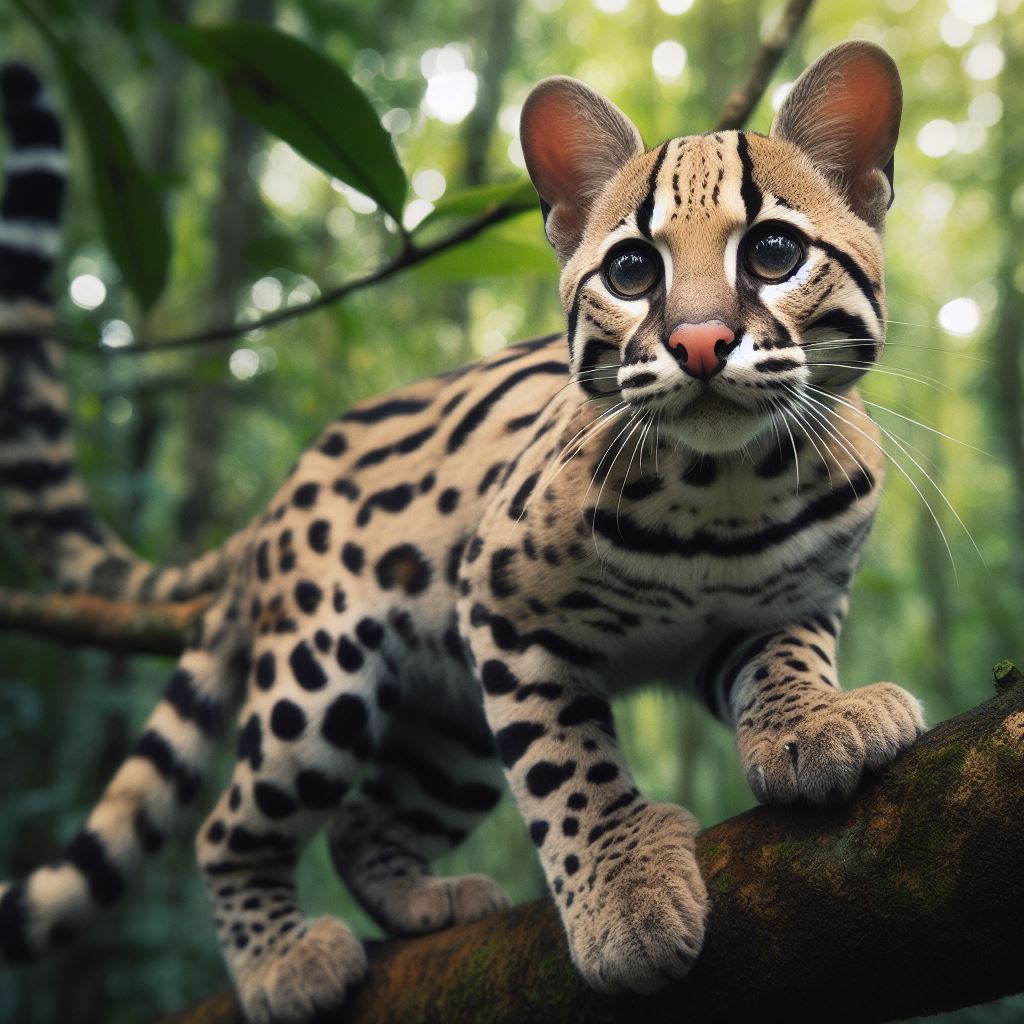The Ocicat is a distinctive and striking domestic cat breed known for its wild appearance, large spots, and friendly temperament. Here is some information about the Ocicat:
1. Appearance:
- Coat: The Ocicat’s coat is short, sleek, and soft to the touch. It has a beautiful and eye-catching spotted pattern that closely resembles that of a wild ocelot. The spots are well-defined and can appear in various colors, including tawny, chocolate, cinnamon, and lavender.
- Body: These cats have a medium to large body with a strong and muscular build. They are known for their athletic appearance.
2. Personality:
- Friendly and Outgoing: Ocicats are renowned for their friendly and outgoing nature. They are typically sociable and enjoy the company of their human family members.
- Intelligent: They are highly intelligent cats and are quick learners. This intelligence often makes them curious and playful.
- Energetic: Ocicats are active and playful cats. They enjoy interactive play and mental stimulation.
- Affectionate: These cats are usually affectionate and enjoy being part of family activities. They can form strong bonds with their owners.
- Vocal: While they are not overly vocal, they may engage in occasional vocalizations to communicate.
3. History:
- The Ocicat is not a wild cat but rather a domestic breed that was selectively bred to resemble wild cats, such as the ocelot.
- The breed was created in the 1960s in the United States when Siamese, Abyssinian, and American Shorthair cats were crossbred.
- The name “Ocicat” is a portmanteau of “Ocelot” and “Cat,” reflecting the breed’s wild appearance.
4. Care and Maintenance:
- Grooming: Ocicats have short, low-maintenance coats that require only occasional brushing to remove loose hair.
- Exercise: These cats are active and require regular exercise and play to stay healthy and happy. Interactive toys and play sessions are essential.
- Health: Ocicats are generally healthy cats, but like all breeds, they may be prone to certain health issues, such as dental problems and obesity. Regular veterinary check-ups are important.
5. Ideal Environment:
- Ocicats thrive in environments where they receive plenty of attention and companionship. They enjoy interactive play and socializing with their owners.
- They do well in various living situations, from apartments to houses, as long as they have room to play and explore.
Ocicats are known for their striking appearance and friendly personalities. They make wonderful companions for families and individuals who can provide them with the attention, exercise, and mental stimulation they need to thrive. Despite their wild appearance, Ocicats are domestic cats and are not associated with any wild species.
